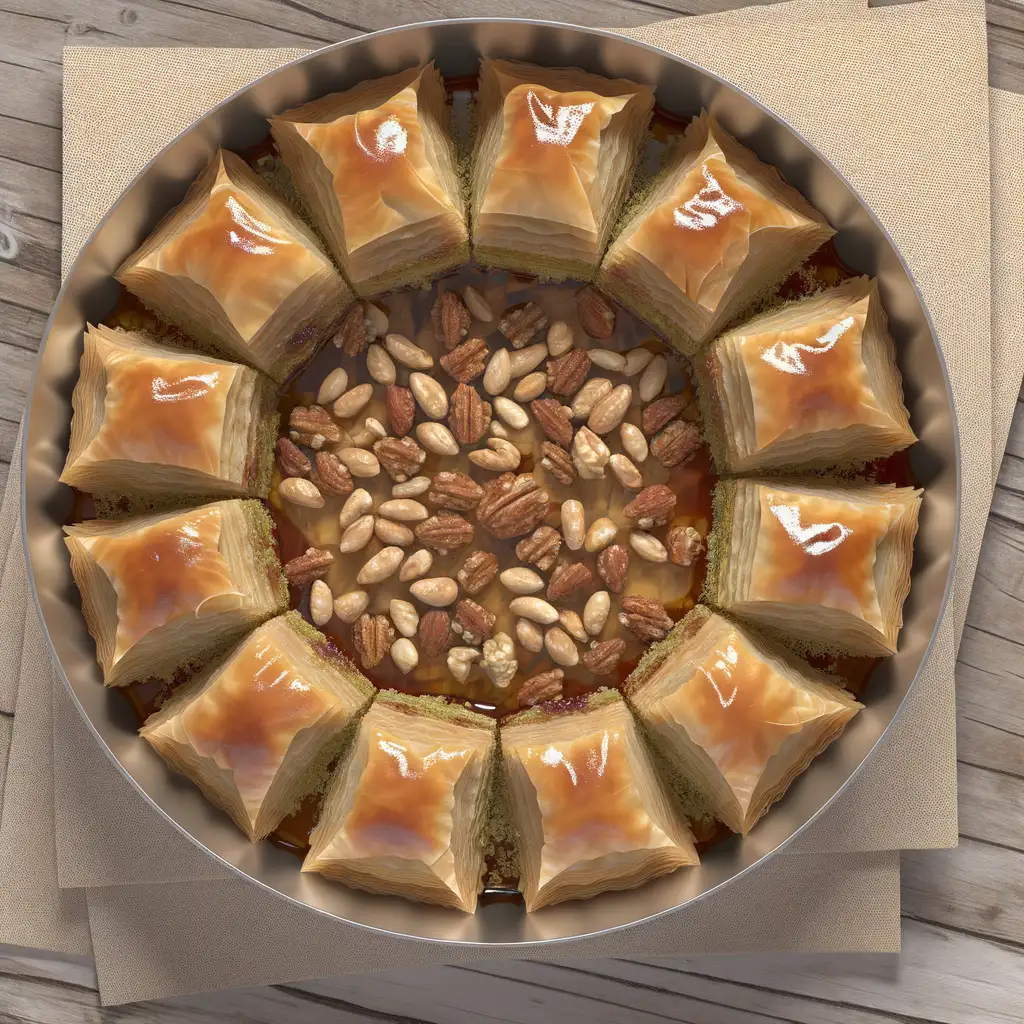



If you ever find yourself craving a place where time slows down just enough to savor every moment,Astypálaia is that kind of magic. Imagine a charming island where whitewashed houses tumble down hillsides,their blue shutters catching the sunlight like little flashes of the Aegean sky. The air carries a salty breeze mixed with the faint scent of wild herbs and freshly baked bread from the local bakeries. Walking through the narrow,winding streets,you’ll hear the gentle clinking of fishing boats in the harbor and the soft murmur of friendly conversations spilling out from cozy tavernas. What really sets Astypálaia apart is its blend of Cycladic and Dodecanese vibes—there’s a laid-back island rhythm here,but also a proud,authentic spirit that locals wear like a badge. You can spend your days exploring quiet beaches with crystal-clear waters that invite you to dive in,or wandering ancient ruins that whisper stories of centuries past. And when the sun dips low,the sky turns a painter’s palette of pinks and oranges,perfect for sipping a glass of local wine while sharing laughs with new friends. The food alone is worth the trip—think fresh seafood grilled to perfection,drizzled with local olive oil,and paired with wild greens and tangy cheeses. It’s a place where every meal feels like a celebration of the island’s simple,honest flavors. Astypálaia isn’t just a destination; it’s a feeling you carry with you long after you leave.
The information on this page is currently being reviewed by Tripkliq and should be used as a guide only
Eng word: Hello
Eng pronunciation: Yah
Local language: Γειά
Eng word: Goodbye
Eng pronunciation: Ahn-dee-oh
Local language: Αντίο
Eng word: Thank you
Eng pronunciation: Ef-khah-ree-stoh
Local language: Ευχαριστώ
Eng word: How much
Eng pronunciation: Poh-soh koh-stee-zee
Local language: Πόσο κοστίζει
Eng word: Toilet
Eng pronunciation: Too-ah-leh-tah
Local language: Τουαλέτα
Eng word: Help me
Eng pronunciation: Voh-ee-thees-teh meh
Local language: Βοηθήστε με
Eng word: Yes
Eng pronunciation: Neh
Local language: Ναι
Eng word: No
Eng pronunciation: Oh-hee
Local language: Όχι
Eng word: Excuse me
Eng pronunciation: See-ghnoh-mee
Local language: Συγγνώμη
Astypálaia has been inhabited since prehistoric times, with evidence of human presence dating back to the Neolithic period. The island's strategic location made it an important hub in the Aegean Sea.
In the 13th century, Astypálaia came under Venetian rule. The Venetians built the impressive Querini Castle, which still stands today and offers stunning views of the island.
Astypálaia was an important part of the Byzantine Empire. The island is home to several Byzantine churches and monasteries, showcasing beautiful frescoes and religious art.
Astypálaia was under Ottoman rule from the 16th century until the early 20th century. The island's architecture and culture were influenced by this period, adding to its rich historical tapestry.
Astypálaia was liberated from Ottoman rule in 1912 and officially became part of Greece in 1947. This period marked a new chapter in the island's history, fostering growth and development.
The island is famous for its traditional windmills, which were used for grinding grain. These picturesque structures are a testament to the island's agricultural past and are a popular tourist attraction.
Built in the 18th century, this beautiful church is one of the most important religious sites on the island. It is known for its stunning architecture and the annual festival held in honor of the Virgin Mary.
Located in the capital, Chora, the Archaeological Museum of Astypálaia houses artifacts from various periods of the island's history, including pottery, tools, and ancient inscriptions.
This fascinating cave is located near the village of Vathy and contains impressive stalactites and stalagmites. It is believed to have been used as a place of worship in ancient times.
In Astypálaia, the most common Power Adaptor is Type C, Type F.



A traditional Greek dish made with layers of eggplant, minced meat, and béchamel sauce, baked to perfection.

A sweet pastry made of layers of filo dough filled with chopped nuts and sweetened with honey or syrup.

A classic Greek salad made with tomatoes, cucumbers, olives, onions, and feta cheese, dressed with olive oil.

Slow-cooked lamb marinated with herbs and spices, traditionally wrapped in parchment paper and baked until tender.

Grilled skewers of marinated meat, often served with pita bread, tomatoes, onions, and a side of tzatziki sauce.

Grape leaves stuffed with a mixture of rice, herbs, and sometimes minced meat, served with lemon.

A creamy dip made from yellow split peas, typically served with olive oil, lemon, and onions.
Santorini is one of the most famous islands in the world,known for its stunning sunsets,whitewashed buildings,blue-domed churches,and breathtaking views of the caldera.
ExploreImagine stepping into a place where the sun kisses whitewashed buildings,and the breeze carries the salty scent of the Aegean Sea mixed with blooming bougainvillea. That’s Mykonos for you—a lively island that feels like a sun-drenched dream with a pulse all its own. The moment you wander through its narrow,winding streets,you’ll hear the cheerful chatter of locals and travelers mingling in cozy cafes,the clinking of glasses filled with crisp local wine,and the distant hum of waves crashing against the shore. It’s a place that effortlessly blends laid-back island charm with a vibrant energy that keeps you on your toes,whether you’re exploring or simply soaking it all in.
What makes Mykonos truly special is its character—a mix of old-world Greek tradition and a cosmopolitan flair. You’ll find charming windmills standing guard over the town,tiny chapels with blue domes,and bustling markets where artisans sell handmade jewelry and fresh olives. The food alone is worth the trip:imagine biting into a juicy,sun-ripened tomato salad drizzled with golden olive oil,or savoring freshly grilled octopus while watching the sunset paint the sky in shades of pink and orange.
But beyond the sights and tastes,Mykonos has a way of making you feel alive. Whether you’re dancing barefoot at a beach party,sipping a cocktail as the stars emerge,or simply strolling along the waterfront watching fishing boats bob gently in the harbor,there’s a warmth here that stays with you long after you leave. It’s not just a destination—it’s a feeling you’ll want to return to again and again.
Rhodes is a historic island city with a UNESCO-listed medieval Old Town,beautiful beaches,and ancient ruins,making it a perfect blend of history and leisure.
ExploreIf you find yourself wandering through Irákleion,the capital of Crete,you’ll immediately notice a lively pulse that’s both ancient and alive. The city hums with a unique blend of history and everyday Greek life—where the scent of freshly baked bread from local bakeries mingles with the salty breeze drifting in from the nearby sea. Walking through its bustling streets,you’ll hear the chatter of locals at outdoor cafés,the clinking of glasses filled with raki,and the distant call of seagulls overhead. It’s a place where the past isn’t just preserved in museums but woven into the very fabric of daily life.
Irákleion’s character is a warm embrace of contrasts:modern shops and vibrant markets sit alongside remnants of Venetian walls and Byzantine churches. The city’s heartbeat is palpable in the central square,where families gather,musicians play,and the aroma of grilled seafood tempts your senses. Don’t miss wandering through the lively market stalls,where you can taste sun-ripened olives,creamy cheeses,and sweet honey that tastes like sunshine.
What makes Irákleion truly special is how effortlessly it invites you to slow down and savor moments—whether it’s sipping a strong Greek coffee while watching the world go by or exploring the nearby archaeological site of Knossos,where myths come alive. It’s a city that feels like a warm conversation with an old friend,full of stories,flavors,and a spirit that stays with you long after you leave.
Náxos feels like stepping into a sun-drenched dream where the sea breeze carries whispers of ancient stories and the scent of blooming jasmine. The island’s main town,also called Náxos,pulses with a laid-back energy that’s both inviting and invigorating. As you wander through its narrow,winding streets,you’ll hear the soft clinking of café cups and the distant laughter of locals sharing a late afternoon ouzo. The whitewashed buildings,kissed by the golden light,create a perfect backdrop for the vibrant bougainvillea spilling over balconies.
What makes Náxos truly special is its blend of rugged natural beauty and warm,authentic culture. You can feel the island’s history in the cool marble of the ancient Portara gate,standing proudly against the endless blue sky. The markets buzz with fresh produce—juicy figs,fragrant herbs,and creamy cheeses that taste like they were made just for you. At a seaside taverna,the flavors of grilled octopus and freshly caught fish mingle with the salty air,making every meal a celebration.
There’s a genuine kindness here that wraps around you like a soft shawl. Whether you’re chatting with a fisherman about his day or watching the sunset paint the horizon in fiery hues,Náxos invites you to slow down and savor the moment. It’s a place where time feels generous,and every corner holds a story waiting to be discovered.
If you ever find yourself dreaming of a place where time slows down just enough to savor every moment,Antíparos is that kind of spot. The island has this effortlessly laid-back vibe,where the rhythm of life is set by the gentle lapping of turquoise waves and the soft chatter of locals greeting each other in the sun-dappled streets. Walking through the narrow alleys,you’ll catch the scent of blooming bougainvillea mingling with salty sea air,and the occasional waft of freshly grilled seafood from a taverna tucked around a corner.
What really makes Antíparos special is its blend of simplicity and charm. The whitewashed houses with their blue shutters seem to glow under the Greek sun,and the small harbor buzzes quietly with fishing boats and sailboats bobbing gently. At night,the island transforms into a cozy haven where you can sip a glass of chilled rosé while listening to the distant strum of a bouzouki,the stars spilling across the sky like a glittering blanket.
The people here are warm and welcoming,proud of their island’s traditions but open-hearted to visitors. You’ll find yourself lingering over slow,delicious meals of fresh octopus,creamy local cheeses,and sweet figs,all paired with the kind of laughter and stories that make you feel like you’ve known these folks forever. Antíparos isn’t about rushing to the next big thing—it’s about sinking into the moment,feeling the sun on your skin,and letting the island’s gentle magic work its way into your soul.
Scammers may install skimming devices on ATMs to steal card information from unsuspecting tourists.
Tourists may be offered fake or non-existent accommodations online, only to find out upon arrival that the property doesn't exist.
Some beach vendors may charge excessive fees for sunbeds and umbrellas, especially in peak tourist areas.
Shops may sell mass-produced items as 'authentic' local products at inflated prices.
Unlicensed individuals may pose as tour guides and charge tourists for inaccurate or subpar tours.
Some taxi drivers may overcharge tourists by not using the meter or taking longer routes to inflate the fare.
Some restaurants may add extra items or hidden fees to the bill, assuming tourists won't notice.
Rental companies may falsely claim pre-existing damage to vehicles and charge tourists hefty repair fees.
The possession, use, and trafficking of illegal drugs are strictly prohibited in Astypálaia, as in the rest of Greece. Penalties for drug-related offenses can be severe, including heavy fines and imprisonment. Tourists should avoid any involvement with illegal substances to ensure a safe and trouble-free visit.
In Astypálaia, Greece, smoking is generally allowed in outdoor public spaces. However, smoking is prohibited in indoor public places, including restaurants, bars, and public transportation, in accordance with Greek national law. Tourists should look for designated smoking areas and always dispose of cigarette butts properly to avoid fines.
Vaping follows similar regulations to smoking in Astypálaia. It is prohibited in indoor public spaces and public transportation. Vaping is allowed in outdoor areas, but tourists should be mindful of local customs and avoid vaping in crowded places or near children.
What are other people saying about Astypálaia?
Recent Social posts about Astypálaia
There is nothing to show you for now.